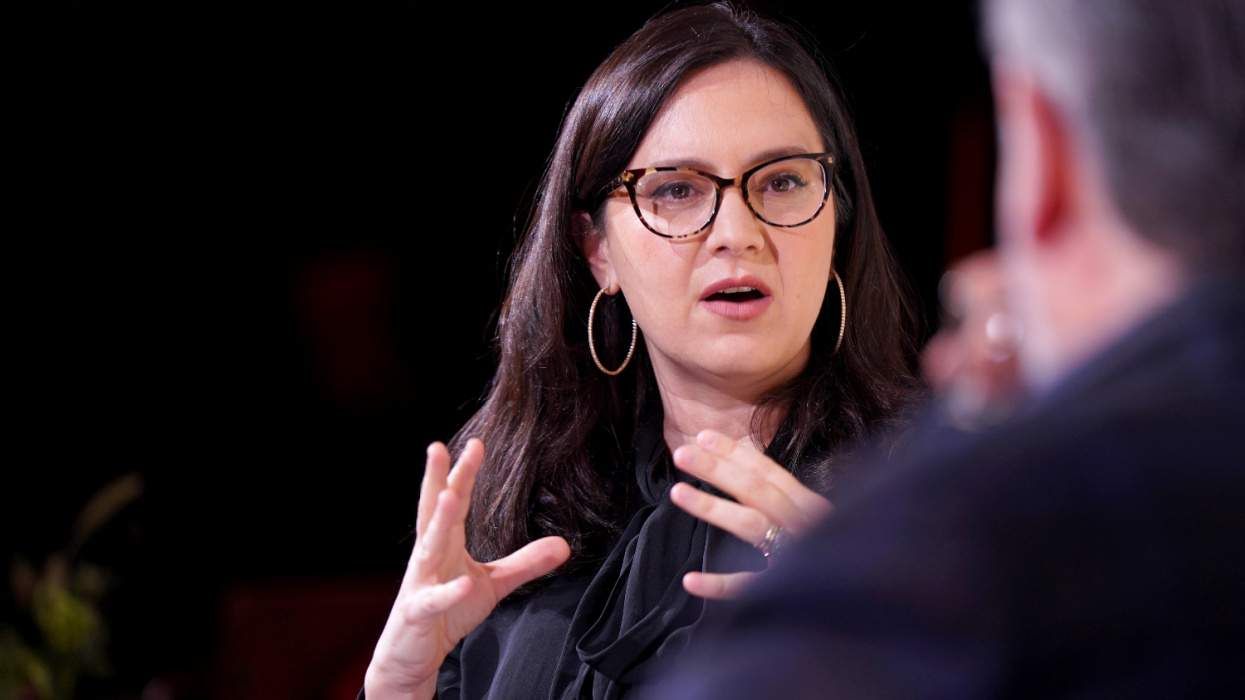As of June 1, when the nation celebrated the beginning of Pride Month, more than a third of states have legally banned best-practice medicine for transgender youth. LGBTQI+ people across the country face alarming rates of substance abuse, diabetes, smoking, eating disorders, anxiety, and depression due to barriers to care and other social stressors. As the Assistant Secretary for Health, and as a pediatrician and adolescent medicine specialist, I’m urging all of us to use this Pride Month to assess our health and take the right steps to protect ourselves.
Celebrating how far we’ve come in terms of legal, social, and professional acceptance is one of the best parts of Pride Month, but this year it’s not easy. We have never asked to be used as political targets. Queer people have never wanted to be attacked, bullied, or described in insulting terms, especially in public life or in the media. Queer youth have never asked to be harassed for who they are, and their parents, loved ones, friends, and allies have never asked to be called groomers or pedophiles.
We all know the challenges that we are facing right now. That’s why this Pride Month, in addition to expressing joy, support, and solidarity with each other, we need to make some time for our own health and wellness.
Making healthy decisions is not always easy. Economic, social, and other lifestyle factors can always conspire against us. But at the end of the day, our health is the product of the choices we make as well as the environment in which we live. We all can and should take action to improve our health and well-being.
Here are five specific actions I’m recommending for LGBTQI+ people to take this Pride Month.
- If you don’t have a primary care clinician you feel comfortable speaking with openly, please take time to find one. For many of us, this is the person in our lives who reminds us to receive our preventive cancer screenings, our annual flu shot and more. It’s very important to have a positive primary care relationship and to receive an annual physical. If you aren’t sure where to start or don’t have a doctor already, contact your local federally qualified health center. These organizations often provide sliding-scale care and are accustomed to working with a diverse patient population.
- If you smoke or vape, I encourage you to reduce the amount you smoke or vape and, if you’re ready, take the steps you need to quit. Smoking and vaping are the leading cause of preventable death for LGBTQI+ people. As a population, we can live longer and lead healthier lives without tobacco in our lungs.
- If you’re HIV-negative, please stay current with HIV tests and consider talking to your provider about pre-exposure prophylaxis, often called PrEP. If you’re HIV-positive, please stay active with your antiretroviral (ART) medication. Always remember that if your antibody level is undetectable, your HIV is untransmittable. In many cases, ART is life-sustaining medication.
- Stay up to date on your COVID-19 and mpox vaccinations. We have incredibly effective vaccines available to us for both of these dangerous viruses. These lifesaving vaccines are essential to keeping ourselves and our community safe. The Centers for Disease Control and Prevention has developed an easy-to-access one-stop online shop for mpox vaccine information, which includes helpful data on prevention strategies.
- Check in on your preventive cancer screenings. Early detection saves lives, and LGBTQI+ people deserve access to the life-saving early cancer treatment that we know provides the best likelihood for cancer remission. Given the long history and clear evidence of cancer screening disparities, I want to urge everyone reading this to take proactive steps to make sure you get screened, even if it is difficult. According to a report published in January in CA: A Cancer Journal for Clinicians, cancer deaths in the U.S. have gone down 33 percent since 1991 due to a decrease in smoking, improved treatment, and increases in early detection.
I advocate for these and other healthy behaviors every day as assistant secretary for health. The offices I oversee work to end the HIV epidemic in the U.S., to safeguard LGBTQI+ youth from harmful practices like so-called conversion therapy, and to spread public awareness that gender-affirming care is best-practice medical care for transgender youth and adults, based on the best available science and decades of study.
This Pride Month, let’s ensure that LGBTQI+ people can access the care we need. It’s a crucial part of our ongoing effort to support healthy people, healthy communities, and a healthy nation for all.
Admiral Rachel L. Levine serves as the 17th Assistant Secretary for Health for the U.S. Department of Health and Human Services (HHS), after being nominated by President Joe Biden and confirmed by the U.S. Senate in 2021. She is the highest-ranking transgender person in the federal government in U.S. history.
Views expressed in The Advocate’s opinion articles are those of the writers and do not necessarily represent the views of The Advocate or our parent company, equalpride.















